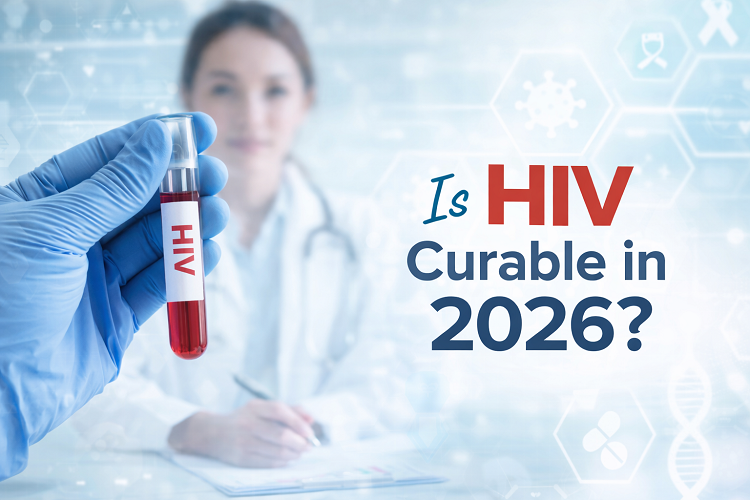In today’s world, open communication about sexual health is more important than ever. Yet, many people still feel ashamed or afraid to disclose that they have a Sexually Transmitted Disease (STD). This fear often leads to secrecy and dishonesty — with devastating results. From hiding medication bottles to faking test results, some individuals go to shocking lengths to conceal their infections from their partners.
Hiding an STD isn’t just unethical — it’s illegal in many places and can cause emotional, physical, and mental harm to others. In this article, we’ll explore real-life stories, shocking ways people have been caught hiding STDs, and what these incidents teach us about honesty, health, and responsibility. This discussion is meant not to shame, but to raise awareness, humanize the experience, and help people make better choices when it comes to sexual health.
The Medication Clue: How Pills Exposed the Truth
One of the most common ways people are caught hiding an STD is through their medication. In many cases, partners notice antiviral pills or prescriptions for antibiotics that are specifically used to treat infections like herpes, chlamydia, or HIV.
In one well-known story shared on social media, a woman found a bottle of Valacyclovir, a medication used for herpes, in her boyfriend’s drawer. When confronted, he claimed it was for “cold sores,” but later admitted he had genital herpes. This kind of deceit not only breaks trust but can also lead to emotional trauma and health risks for the other partner.
What this teaches us is that honesty about sexual health can prevent long-term damage. If you’re living with an STD, having an open conversation is far more respectful and ethical than letting someone find out by accident.
Fake Test Results: The Digital Age of Deception
In today’s era of digital convenience, some people have gone as far as photoshopping STD test results to appear clean before engaging in new relationships. This disturbing trend has been exposed on Reddit, TikTok, and health forums, where victims shared screenshots of edited reports that were later proven fake.
One user discovered her partner had modified an old PDF from a clinic, changing the word “positive” to “negative.” When she later tested positive for the same infection, everything unraveled. This highlights how dangerous digital deception can be when people prioritize their ego over someone else’s safety.
Online dating platforms and health communities encourage users to verify medical records through legitimate health portals or verified healthcare providers. Transparency builds trust — manipulation destroys it.
The Condom Excuse: “I Always Use Protection” — But Do They Really?
Another shocking way people hide STDs is by falsely claiming to always use protection. Some individuals insist that they’re “careful” or “clean,” when in reality, they engage in unprotected sex knowing they carry an infection.
This kind of behavior is not only unethical but also criminal in some countries. Victims often find out after experiencing symptoms like itching, discharge, or sores — and when they get tested, the truth emerges. Sadly, by then, the damage is already done.
Sexual responsibility is not just about using condoms — it’s about honesty, testing, and communication. If you have an STD, lying to protect your image risks another person’s health and your own integrity.
The Hidden Files: When Digital Footprints Expose Secrets
Many individuals who try to hide their STDs forget one thing — digital footprints never truly disappear. From Google searches like “how to treat herpes naturally” to saved lab reports on their phones, digital evidence often reveals the truth.
In one viral case, a woman discovered her partner’s browser history filled with “HIV support groups” and “how long can you live with herpes.” This led her to confront him — and indeed, he had been hiding his diagnosis for months.
In the age of smartphones, it’s nearly impossible to erase digital clues. Instead of hiding, people should seek understanding and compassion from their partners. Health issues can be managed, but lies can’t be erased once discovered.
Friends Spill the Truth: Confessions from Inner Circles
Sometimes, the truth doesn’t come from the person hiding the STD — it comes from a friend, ex, or family member. Many people have discovered their partner’s diagnosis through indirect sources who couldn’t keep the secret.
One Reddit user revealed that her ex’s best friend accidentally mentioned his herpes diagnosis during a casual conversation. While this may seem like gossip, it highlights how secrets have a way of surfacing, especially when multiple people know the truth.
Trust and health go hand in hand. Being upfront about your condition allows you to form real, caring relationships rather than ones built on hidden shame.
The Medical Emergency: Hospital Visits That Reveal Everything
Some people hiding an STD get exposed when an unexpected medical emergency forces them to explain their condition. For instance, when an untreated infection turns into pelvic inflammatory disease (PID) or when someone is hospitalized due to complications from untreated syphilis or HIV.
These scenarios are heartbreaking because they could have been avoided with early disclosure and treatment. When a partner finds out about the condition during a hospital visit, it not only causes emotional pain but also raises legal and ethical issues.
Honesty might feel hard at first, but it prevents worse outcomes down the road — for both partners.
Social Media Confessions: The Internet Never Forgets
Social media has become a surprising source of exposure for people hiding STDs. Whether it’s a TikTok confession, a YouTube vlog, or a Reddit thread, many people share their personal experiences of being deceived or infected by dishonest partners.
Some have even caught their partners commenting on posts or joining STD support groups under pseudonyms. Others have discovered private conversations where the person admitted having an STD to someone else but not to them.
These online revelations are often shocking and public, turning private deception into viral scandal. The moral is clear: what’s hidden online will eventually be found.
The Medical Bill or Insurance Slip-Up
This is one of the most common ways long-term partners find out — especially in shared households. Insurance paperwork doesn’t lie, and medical records are hard to conceal. Instead of living in fear of being exposed, individuals can build healthier relationships by being upfront about their conditions from the start.
The Guilt Confession: When the Truth Finally Comes Out
While it’s never too late to come clean, delayed honesty still leaves emotional scars. Many people say they could have handled the truth better if they had known earlier. This proves that honesty builds resilience and understanding, while deception destroys trust completely.
If you’re in this situation, remember that courage and accountability can start the healing process for both sides.
The Legal Fallout: When Hiding an STD Becomes a Crime
In several regions, intentionally hiding or transmitting an STD can result in criminal charges. Laws vary by country and state, but many jurisdictions classify nondisclosure of infections like HIV, syphilis, or gonorrhea as a serious offense.
Victims can pursue legal action if they contract an STD from someone who knew about their condition and chose to stay silent. Real-world cases have led to fines, imprisonment, and lifetime registry in some situations.
This reinforces that sexual honesty is not just a moral duty — it’s a legal one. Protecting yourself and others starts with full transparency.
Why People Hide STDs: Understanding the Fear Behind the Lies
Before passing judgment, it’s important to understand why people hide their STD status. Society still treats sexually transmitted infections as taboo, which makes it harder for people to come forward.
However, living in silence only worsens emotional distress and damages relationships. The truth is, millions of people live healthy, fulfilling lives with manageable STDs like herpes or HPV. Modern treatments and honest communication make it possible to have love, intimacy, and trust — without secrecy.
Education, empathy, and open dialogue are the keys to breaking this harmful cycle of shame and deceit.
Protecting Yourself: Awareness, Testing, and Prevention
The best defense against deception is awareness and regular testing.
Look for free STD testing clinics, confidential online test kits, or local sexual health centers. Educate yourself on early symptoms and prevention methods. Don’t rely solely on someone else’s word — protect yourself with knowledge and caution.
Prevention begins with honesty, both with yourself and others.
Conclusion: Breaking the Silence — Choosing Honesty Over Shame
But regardless of the reason, hiding a Sexually Transmitted Infection can have serious emotional, physical, and legal consequences.
It’s time to change the conversation around STDs — from one of secrecy and stigma to one of compassion and responsibility. Whether you live with herpes, HPV, HIV, or another infection, remember this: you are not alone, and honesty is your strongest ally.
When we normalize open discussions about sexual health, we not only protect ourselves but also create a world where love and trust thrive beyond fear.



